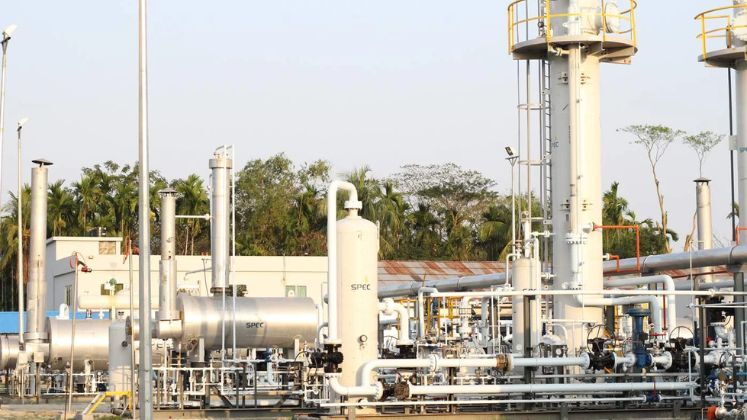
A viable gas resource of 5.109 trillion cubic feet (TCF) has been discovered in Bhola. Elisha and Shahbazpur hold 2.423 TCF of gas resources, whereas Char Fashion holds 2.686 TCF. On the market, this resource is expected to be valued around Taka 6.5 trillion. To obtain this data about the gas resources, Bangladesh Petroleum Exploration and Production Company Limited (BAPEX) and the massive Russian energy company Gazprom collaborated on study.
According to Alamgir Hossain, a former general manager of the Geological Department at BAPEX, there could be over 5 TCF of gas there.
Chairman of Petrobangla Janendranath Sarkar claims that the Bhola-Barishal and Barishal-Khulna gas pipelines, which will link Bhola’s gas to the national grid, are already fully set up.
This discovery is a significant advancement that could alter the country’s energy landscape. Bangladesh may become more energy independent and less reliant on LNG imports by utilising this resource. This would aid in resolving the ongoing energy difficulties that have impacted numerous sectors of the economy, including the textile sector.
Bangladesh now imports a large amount of LNG to meet its rising demand. The Bhola gas deposit has the potential to significantly reduce this requirement. According to energy experts, the country may be able to meet its needs for up to five years from its gas reserves, so this discovery could drastically lower energy costs and stabilise supply. Gas shortages have historically caused significant disruptions to the textile industry; up to 60 per cent of mills experience outages due to inconsistent supplies.
The textile industry, one of Bangladesh’s primary economic sectors, needs on reasonably priced, consistent power to operate effectively. By utilising Bangladesh’s gas resources, the industry might benefit from consistent energy availability, which would reduce production delays and boost Bangladesh’s competitiveness in global markets.
Additionally, the innovative use of Bhola’s gas for industrial purposes—such as transporting compressed natural gas, or CNG—shows a forward-thinking approach that can further benefit the textile and other industries.






